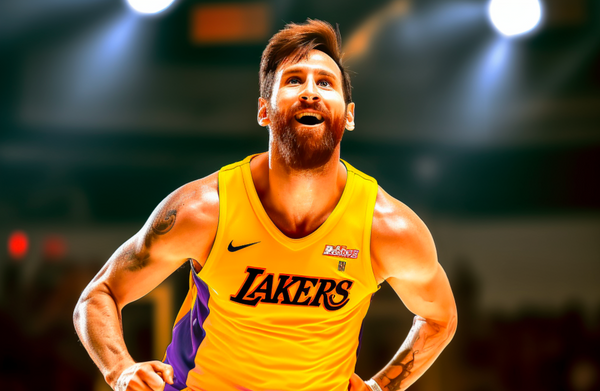The Digital Transformation of Sports Merchandising

The digital transformation of sports clubs has become a crucial aspect of their growth and success in recent years. With the rapid advancements in technology and the increasing demand for digital experiences, sports clubs must adapt and innovate to stay relevant and competitive in the market.
👀 Key Takeaways
- Digital transformation is essential for sports clubs to improve fan engagement, streamline operations, and enhance performance[1][3].
- The use of data analytics, mobile technologies, and digital platforms has revolutionized the sports industry[5][7].
- Clubs that successfully embrace digital transformation can unlock new revenue streams, increase fan loyalty, and optimize their operations[2][6].
- The future of sports clubs will be heavily influenced by their ability to adapt to new technologies and trends[10][12].
- Digital transformation requires a holistic approach, involving all stakeholders and fostering a culture of innovation[11].
🔍 Market Trends
- The rise of direct-to-consumer (D2C) strategies, driven by mobile technologies and digital consumption[7][12].
- Increasing use of data analytics to improve performance, decision-making, and fan engagement[5][13].
- Growing adoption of digital platforms for communication, management, and fan interaction[1][3].
- The integration of blockchain and digital assets in sports clubs' ecosystems[15].
- The emergence of virtual and augmented reality experiences to enhance fan engagement[8].
🏆 Top Businesses
- FC Barcelona website: A leading football club that has embraced digital transformation, offering a comprehensive digital experience for fans and optimizing its operations[9].
- Manchester City website: A football club that has successfully implemented digital strategies, including data analytics, fan engagement platforms, and innovative partnerships[9].
- Golden State Warriors website: An NBA team that has leveraged digital transformation to enhance fan experiences, improve team performance, and streamline operations[9].
🧩 What If Scenarios
- What if sports clubs could use virtual reality to create immersive training environments for athletes, improving their skills and performance?
- What if clubs could leverage artificial intelligence to predict fan preferences and deliver personalized content and experiences?
- What if digital transformation enabled sports clubs to create new revenue streams through digital assets, such as NFTs and virtual merchandise?
💡 Idea Generation
- Develop mobile apps to enhance fan engagement, offering exclusive content, real-time updates, and interactive features.
- Implement data analytics tools to optimize team performance, player recruitment, and fan targeting.
- Create digital platforms for seamless communication and collaboration among club staff, athletes, and fans.
- Explore partnerships with technology companies to develop innovative solutions for fan experiences and club operations.
- Leverage social media and digital marketing strategies to expand the club's reach and attract new fans.
🔮 Future Impact
- Digital transformation will continue to reshape the sports industry, with clubs that adapt quickly gaining a competitive advantage[5][10].
- The increasing use of data analytics and AI will lead to more informed decision-making and improved performance for sports clubs[5][13].
- The integration of emerging technologies, such as virtual reality and blockchain, will create new opportunities for fan engagement and revenue generation[8][15].
- Sports clubs will need to foster a culture of innovation and continuous improvement to stay ahead in the rapidly evolving digital landscape[11].
In conclusion, the digital transformation of sports clubs is an exciting and challenging journey that offers numerous opportunities for growth and success. By embracing new technologies, fostering innovation, and adapting to market trends, sports clubs can enhance fan experiences, optimize operations, and secure their place in the future of the sports industry.





